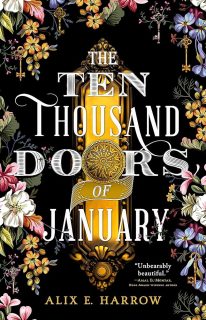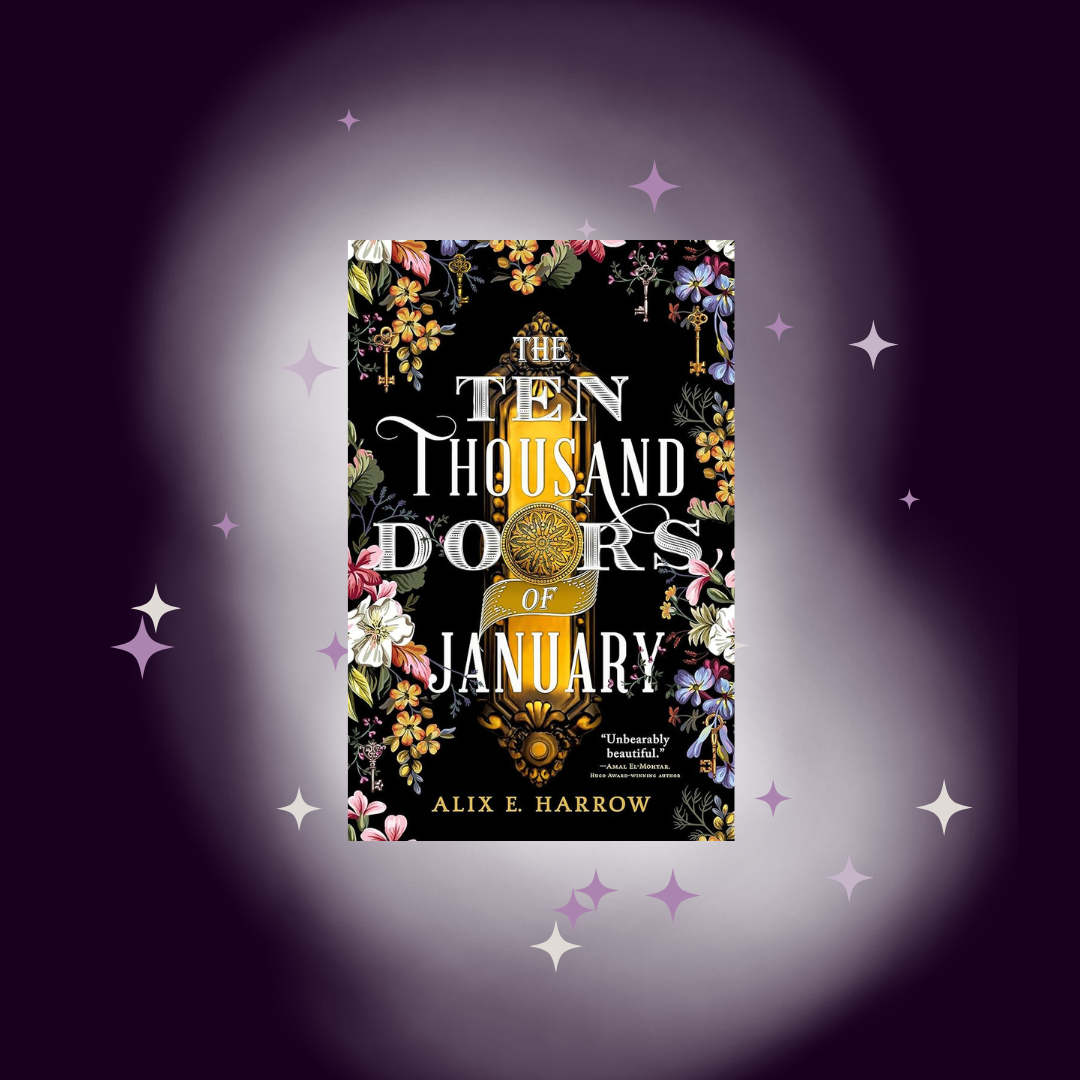
Lovers of words and believers in imagination would, I hope, thoroughly enjoy the world and writing of Alix E. Harrow’s The Ten Thousand Doors of January.
The story is told mainly from the point of view of seventeen-year-old January Scaller. The young, unique Miss Scaller has grown up in the beautiful mansion of the wealthy Mr. Locke, feeling very much like one of his many artifacts—ignored while on display, a symbol of status and rare taste. One day, when she discovers a strange book outlining the secret worlds found behind numerous magic doors, she finally feels like she can escape her story.
As an avid reader and occasional writer, myself, I adored how reverently the author spoke about the power of words, stories, and imagination. They, alongside the found family that comes to mean so much to her, played a large part in the female main character’s finding of her true faith and power.
The first half of the book is split between January’s point of view and chapters from the book that she has found. These sections can have slower moments at the beginning, as it starts out as an academic study of the magic of Doors complete with footnotes. This provides fantastic backstory and worldbuilding and so is quite important.
The slower pace of the first portion of the book made me less compelled than I would have liked toward picking the book back up. I was working through a reading slump the majority of the time I was reading the book, but I will happily say that the second portion of The Ten Thousand Doors of January was able to keep my attention much better. As the stakes got higher and the plot fleshed out more, I found myself more engrossed in the story and truly believe the wonderful ending helped me end my slump.
If you are someone who annotates your books, be prepared with your pens and tabs, because the gorgeous phraseology throughout the story is worth marking. I underlined so much, I couldn’t even attempt to deduce my favorites, but I can list a few from the first chapter that I think would help pique interest.
- “There was no room, it turned out, for little girls who wandered off the edge of the map and told the truth about the mad, impossible things they found there.”
- “Sometimes I feel there are doors lurking in the creases of every sentence, with periods for knobs and verbs for hinges.”
- “People don’t like the in-between things, I suppose.”
- “A true kind of story, something I could crawl into if only I believed it hard enough.”
And that’s all just within the first ten pages. Full of adventure, love, magic, and danger, this lyrically written tale speaks to the souls of readers and writers.
You can borrow The Ten Thousand Doors of January from our Leisure Reading Collection.

You must be logged in to post a comment.